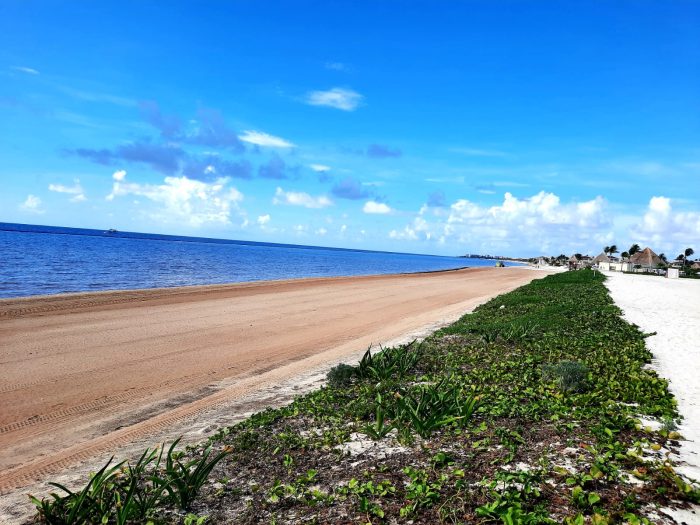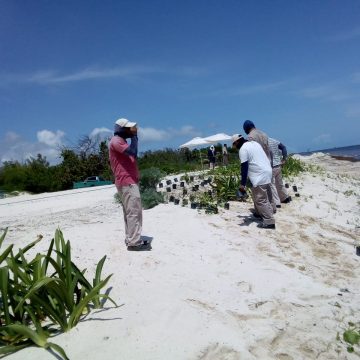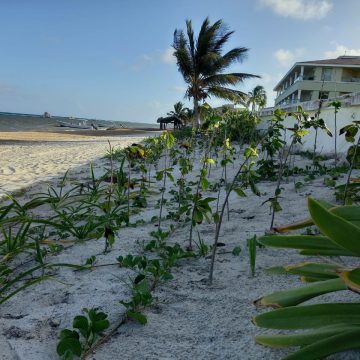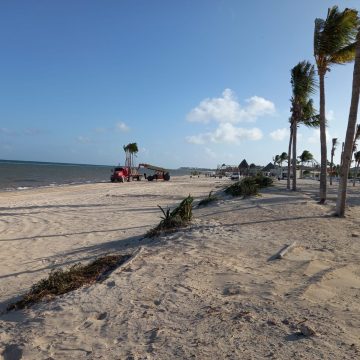A few years ago, removing a retaining wall that blocked waves, and instead restoring the dune’s native vegetation as a measure to prevent coastal erosion, might have sounded unlikely. However, the Moon Palace Group in Quintana Roo has understood that nature itself is the best ally for reducing climate change vulnerability.

This ecosystem-based adaptation measure (EbA) began in 2019 with the technical support of the project Adaptation to Climate Change in the Tourism Sector (ADAPTUR) of the Deutsche Gesellschaft für Internationale Zusammenarbeit (GIZ), The Nature Conservancy (TNC) and the United Nations Development Programme (UNDP Resilience).
To date, the commitment of the hotel group through the Environmental Management Department remains strong; despite the health and economic crisis caused by the COVID-19 pandemic, they have made progress in:
- The removal of 280 linear metres of retaining wall that separated the hotel area from the beach.
- The transformation of 5,000 square meters of exotic grass gardens to their natural state: sagassum was removed and a sandy coastal dune was recovered, with native species of plants that provide stability to the coastline.
- The reforestation of 1.8 kilometres of coastal dune with varied and stratified species.
- Constant monitoring of the effectiveness of actions and technical exchange with experts.
The plants used are not only adapted to the climate and soil, but also keep the beach stable, where they are not present, erosion continues and reduces the areas for recreational use.
In March 2022, ADAPTUR coordinated a technical visit to Moon Palace facilities and an experience exchange session with another important hotel group, who have also initiated coastal dune restoration efforts in the Mexican Caribbean.

This case study is an inspiring example and demonstrates that the private sector can improve its operation in the market and at the same time achieve the climate resilience of a region.



